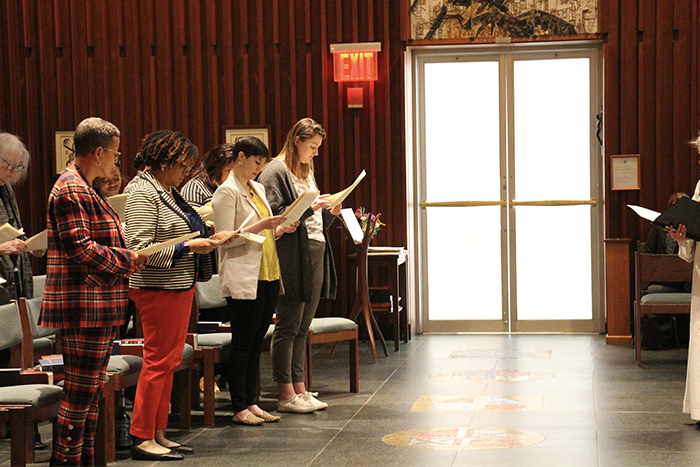Photo – A service at the Episcopal Church Centre which had intended to mark the opening of the 64th Commission on the Status of Women
Member States at the United Nations have agreed to fully implement the Beijing Declaration on gender equality. They political declaration was adopted on Monday 9 March where the Commission on the Status of Women (CSW) held a one-day procedural meeting, rather than the planned two-week summit. The full meeting was postponed following concern about the spread of COVID-19.
The Anglican Communion had planned to take a delegation of eight women from all around the world, to CSW, but an announcement from UN Women that came just days before the summit was due to start said no delegations based outside of New York would be allowed to attend. The UN has said that the summit will be re-scheduled for later this year, but dates are yet to be announced.
“My heart goes out to the delegation in this time of disappointment”, Rachael Fraser, the Research and Advocacy Officer at the Anglican Communion Office, said. “We have been walking alongside them since October 2019 and it’s been an honour to witness their energy, passion, and vision for a world free from injustice. But the work does not stop: we are already hearing the ways that our delegates are organising to continue the fight for gender justice in their communities.”
In the political declaration, member states welcomed the progress made towards the full, effective and accelerated implementation of the Beijing Declaration and Platform for Action, but expressed concern that overall, progress has not been fast or deep enough. In some areas progress has been uneven, and that structural barriers, discriminatory practices and the feminisation of poverty persist.
A Eucharist service was planned to mark the opening of the 64th United Nations Commission on the Status of Women at the Episcopal Church Centre in New York. The Centre held its regular midday Eucharist service instead, but the Prayers of the People were written by the women who were part of the Anglican and Episcopalian delegations.
DraggedImage.4ea325ce733b4cfeb599da773a6b9810.png



